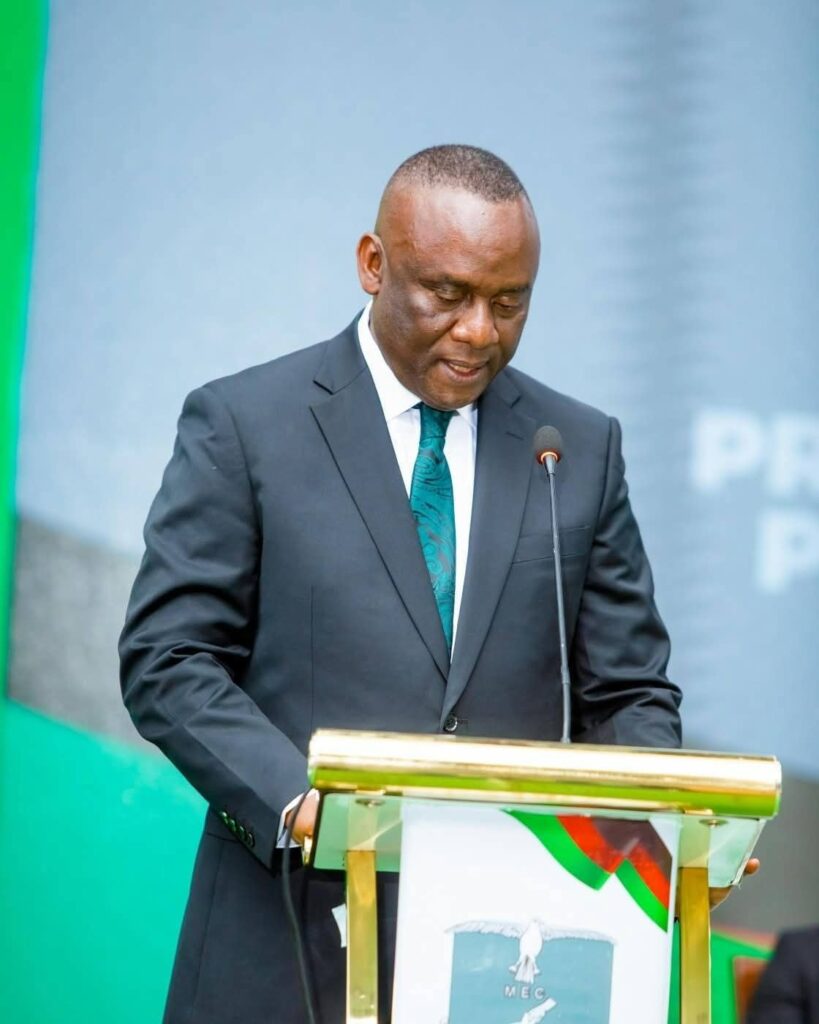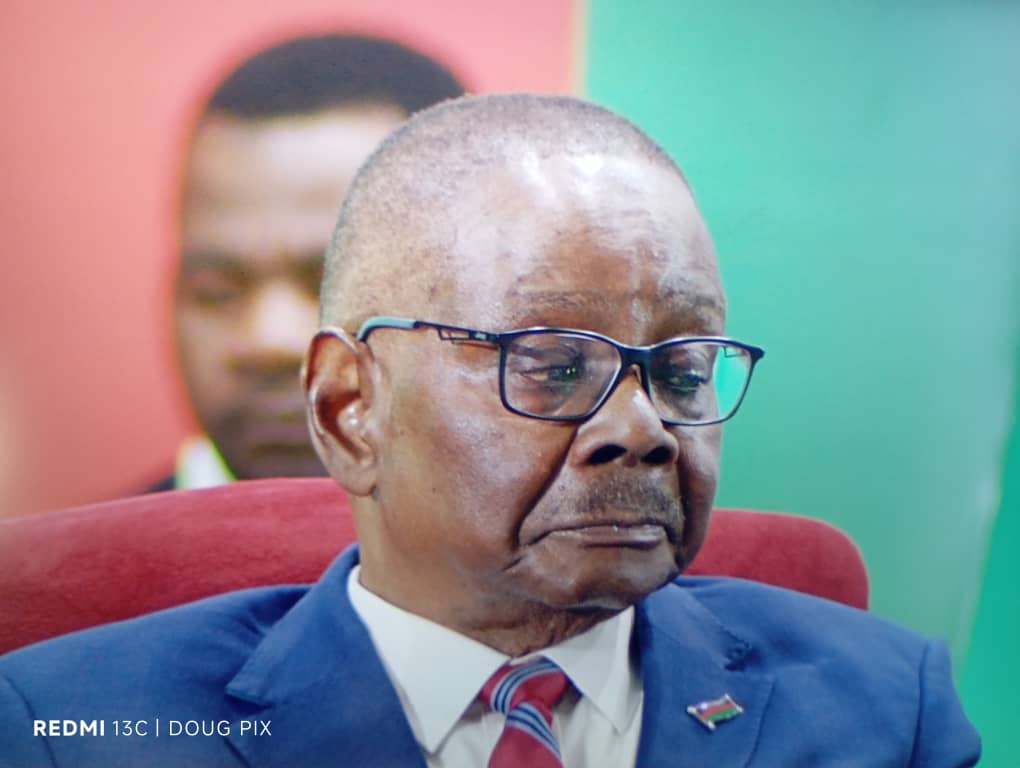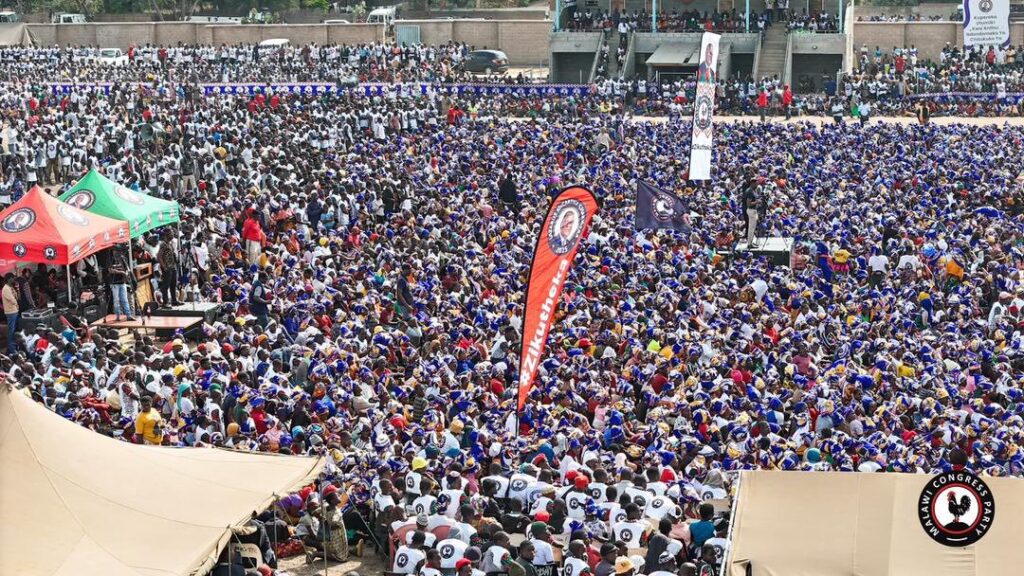Frank Tumpale Mwenifumbo’s dramatic decision to re-enter the presidential race, barely days after officially withdrawing and endorsing the DPP, has once again thrown the Democratic Progressive Party (DPP) campaign into a turmoil.
Mwenifumbo is the leader of the National Development Party (NDP) who initially indicated that his party has withdrawn from the presidential race to support the DPP-Northern Bloc alliance signed a day before Arthur Peter Mutharika presented nomination papers as a torch bearer for the grouping.
This surprise reversal reflects deep confusion within his own camp and signals a critical turning point in what the DPP had been calling its strategic “Northern Alliance.”
Mwenifumbo’s decision casts a shadow of instability and mistrust over the alliance-building process led by the former President’s camp.
It also underscores a deeper problem. The DPP’s inability to maintain political cohesion and trust among its northern partners.

The timing of Mwenifumbo’s u-turn couldn’t be worse for the DPP.
His exit follows the withdrawal of Khumbo Kachali, former Vice President and leader of the Freedom Party, who opted to re-align with former President Joyce Banda and People’s Party (PP) as her running mate. Then came Timothy Mtambo, the Vice President of AFORD, who publicly rejected his party’s alliance with the DPP, citing the DPP’s corrupt past and its “unrepentant leadership.”
Together, these three exits are symbolic as they demolish any remaining credibility of the so-called DPP-Northern Alliance, reducing it to what now appears to be nothing more than a hollow arrangement cooked up by Enoch Chihana and the DPP inner circle, without widespread support from the region’s political heavyweights or grassroots.
The original idea behind the DPP-Northern Alliance was simple: to solidify votes in the North, a region that has historically voted in blocs and wields considerable electoral influence. However, that plan rested on a faulty assumption that Northern political figures could be roped in through elite deals without broader legitimacy or strategic consultation.
Enoch Chihana’s move to align AFORD with the DPP was seen as top-down and self-serving.
Mtambo’s press conference explicitly highlighted this, accusing Chihana of failing to consult even his own party leadership. Mwenifumbo’s withdrawal and return to candidacy further confirms the deep fractures and lack of consensus among Northern leaders.
The optics are now devastating. With Kachali, Mtambo, and now Mwenifumbo all pulling out of the alliance, the DPP is left holding onto a shell of a coalition, propped up only by Chihana, who himself faces internal rebellion.
Mwenifumbo’s re-entry, yes, sounds more like a personal political recalculation but it is also a loud statement that the DPP is not the winning horse, and its partnerships are not worth betting on.
This move exposes the party’s: lack of appeal among emerging or independent northern voices, who would rather risk going solo than campaign under the DPP brand; leadership crisis, particularly with APM’s fitness and visibility being questioned as he avoids campaign rallies in favor of photo ops; and failure to inspire trust, as even those who had signed formal agreements, like Mwenifumbo, are now jumping ship.
It is not far-fetched to say that Mwenifumbo saw the alliance as a sinking ship, and in the absence of policy clarity, direction, and even visible campaigning from Mutharika, he opted to reclaim his agency and take a stand.

It is said that soon after presenting his papers, the Northern Bloc thought this was the time to get APM’s signature on the agreement papers to their shock, when they arrived at Mutharika’s Lilongwe residence, the old man failed to come out exhausted with the less than one hour ceremony at BICC.
It was instead George Chaponda who again presided over the signing.
“It was clear that as old and sickly as he is, he could no longer endure the day which was disappointing to us as we thought he is an able man who could stand the heat of the campaign,” said one of the officials present.
Again, the recent cascade of exits from the alliance is evidence of several key DPP miscalculations.
Underestimating internal divisions within parties like AFORD and NDP with deals being cut with party presidents without grassroots or leadership buy-in; betting on an unpopular figurehead and Mutharika’s avoidance of public rallies and his perceived frailty make him an unattractive ally in a high-energy campaign; and ignoring the electorate’s sentiment, especially in the North who have not forgotten Jane Ansah’s role in the 2019 electoral chaos.
It has to be noted that Ansah’s presence on the DPP ticket is widely seen as provocative and insulting.
The consequences of this alliance fallout are significant.
Instead of consolidating northern votes, the DPP now faces a splintered terrain. Khumbo Kachali with PP, Mwenifumbo with NDP, and Mtambo’s independence stand weaken the DPP’s electoral arithmetic.
The DPP’s inability to retain even temporary allies makes it look disorganized and desperate. Its national footprint shrinks with each defection.

Now, President Dr. Lazarus McCarthy Chakwera’s Malawi Congress Party (MCP), which just held a massive rally in Mangochi, appears far more stable and united.
Practically speaking, yes, the DPP-Northern Alliance has collapsed. With all prominent leaders rejecting the pact or pulling out, the alliance now only exists in name.
Enock Chihana, who remains the last northern leader still in bed with the DPP, is now politically isolated and risks losing what’s left of AFORD’s legacy and influence.
Mwenifumbo’s return to the ballot signals one thing very clearly: the North will not be bought by weak alliances or recycled leadership. The region is demanding authenticity, integrity, and true development-focused leadership. Right now, the DPP is offering none of the above.
With this collapsing alliance, the DPP now limps into the final weeks before the September elections, bruised, abandoned, and politically poorer than it was just a week ago.








